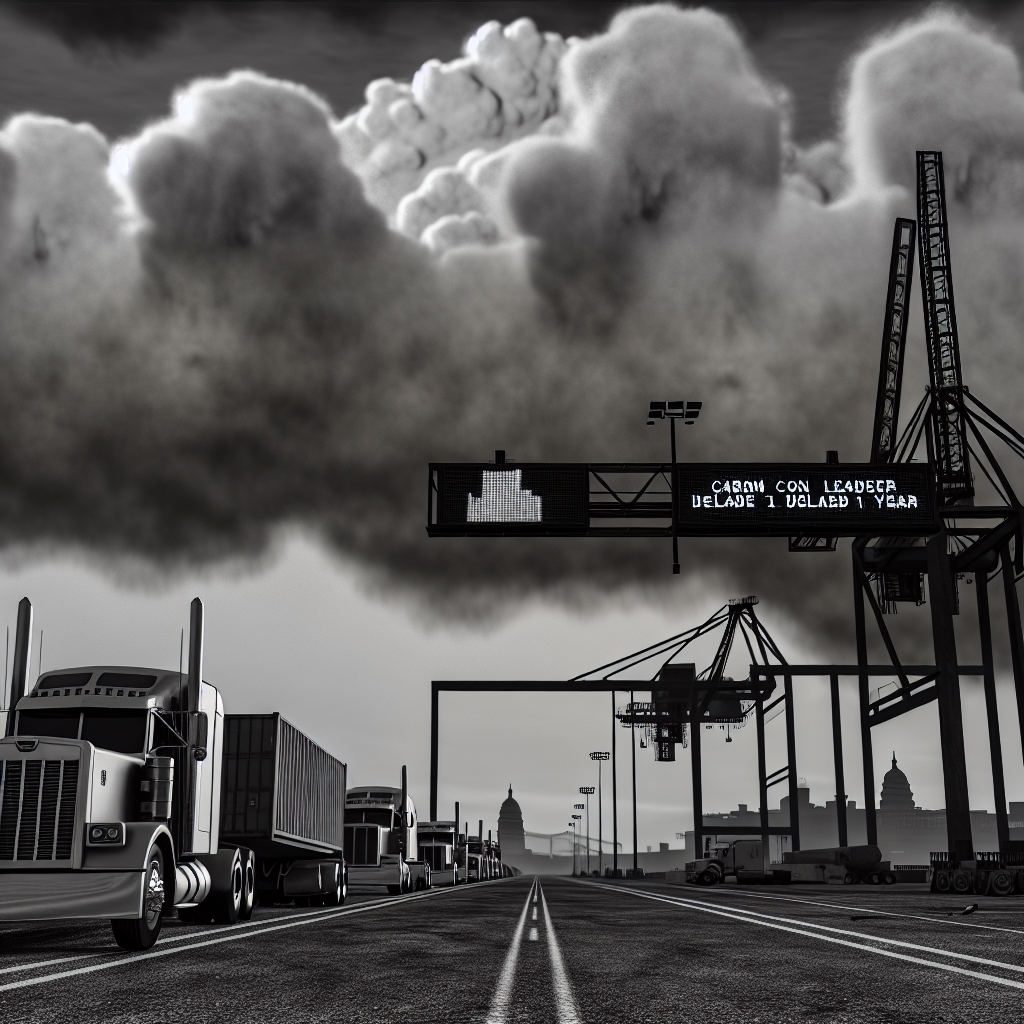Global plans for a first-ever carbon price on shipping were put on ice Friday, after President Donald Trump urged countries to vote “No” and denounced the proposal as a “Global Green New Scam Tax.” Delegates at the U.N.’s International Maritime Organization (IMO) voted to adjourn the decision for a year, 57–49 with 21 abstentions, halting what supporters expected would be a landmark rulemaking to charge ships for greenhouse-gas pollution.
The pause followed a week of hardball diplomacy led by Washington, including threats of trade retaliation, visa limits and added port fees for nations backing the measure — pressure that several delegations said changed the calculus in the room. U.S. opposition was joined by countries such as Saudi Arabia and Russia, while an EU‑led coalition and Brazil pushed to adopt the framework now.
Formally, the IMO said its Marine Environment Protection Committee (MEPC) will reconvene the extraordinary session in 12 months. Work on the technical guidelines continues this week (Oct. 20–24), but the core decision on a global fuel standard paired with a greenhouse‑gas pricing mechanism now waits until 2026.
Industry reaction captured the whiplash. The International Chamber of Shipping called the delay “disappointing,” warning that a lack of regulatory clarity stalls investment decisions on cleaner fuels and vessels — a sentiment echoed by bunker and commodity analysts who say uncertainty will hang over marine fuel choices into next year.
Why it matters for trucking: a near‑term cost shock tied to ocean decarbonization just receded. A global levy would have nudged carrier fuel costs and, by extension, all‑in container and bulk freight rates higher — pass‑throughs that hit importers’ landed costs and ultimately retail supply chains. With the vote delayed, U.S. shippers face less immediate upward pressure on ocean pricing, which helps keep port drayage invoices, transloading budgets and downstream truckload/parcel costs from climbing as quickly into peak holiday replenishment. That relief is temporary; the rulemaking is very much alive and could still reshape cost curves later in the decade.
Still, the adjournment injects strategic risk into 2026 planning. If negotiators return next year with a revised package, carriers could pre‑position by slow‑steaming, adjusting networks, or accelerating alternative‑fuel pilots, all of which can alter port calls, equipment balance, and drayage availability. Proponents estimate a carbon price could eventually raise on the order of $10 billion annually to fund greener shipping — money that could incentivize fuel switching and operational changes with knock‑on effects for intermodal flows. For fleet operators tied to coastal markets, that means watching bid cycles and RFP language for fuel‑surcharge updates and “environmental compliance” riders.
The politics are now inseparable from the policy. Trump’s public intervention — and the administration’s warnings of tariffs and other reciprocal measures — hardened opposition and spotlighted a growing U.S.–EU split over how to decarbonize global trade. Even the IMO’s secretary‑general cautioned delegates about conduct and process as talks grew tense, a sign of how fraught the next 12 months could be.
What’s next: The IMO’s intersessional working group meets Oct. 20–24 to keep drafting guidance, but the make‑or‑break vote won’t return until late 2026 at the earliest. Shippers and motor carriers should use the window to scenario‑plan: map cost exposure to potential carbon fees, review fuel‑surcharge triggers in ocean and drayage contracts, and stress‑test port diversification strategies so a future regulatory swing doesn’t cascade into avoidable trucking bottlenecks.
Sources: FreightWaves, Associated Press, Reuters, The Guardian, International Maritime Organization, S&P Global Commodity Insights, MarineLink, Argus Media, The National, The Washington Post, DieselNet
This article was prepared exclusively for TruckStopInsider.com. Republishing is permitted only with proper credit and a link back to the original source.





